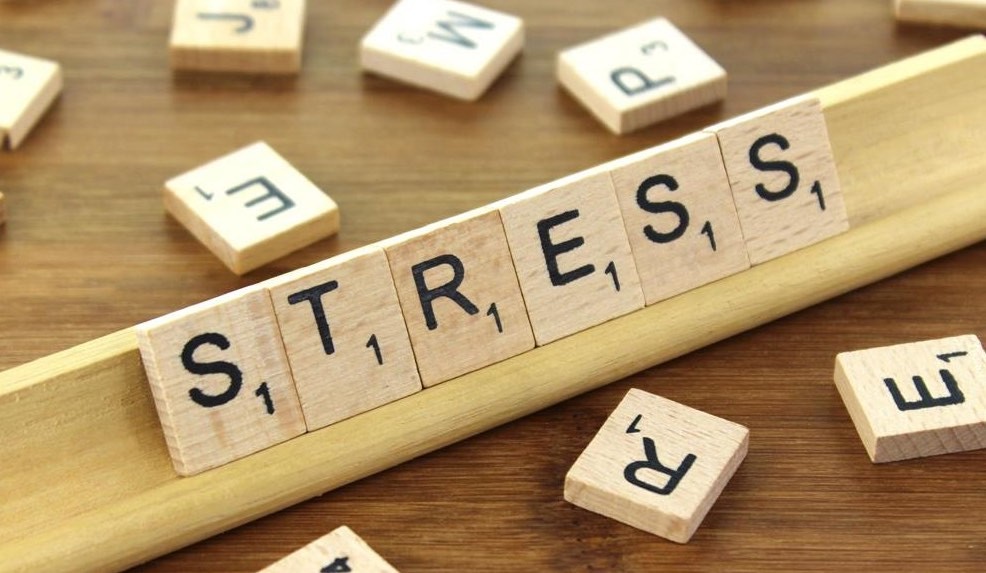How to Overcome Work Stress: The Best Tips From Our Instructors
Recently, we at LinkedIn Learning ran a survey that found 52 percent – more than half – of professionals are stressed in their jobs. And, as your career advances and you make more money, we found stress tends to only increase.
That’s a lot of stress. How are people dealing with it all?
Well, to find out, we asked LinkedIn Learning instructors their favorite hack for dealing with stress at work. We got back a litany of awesome responses.
Here are seven of the best tips we got, for practical tips for overcoming stress at work:
1. Avoid the competition trap.
From Dave Crenshaw
Have you ever caught yourself thinking, “I have the same amount of hours in my day as [insert the name of your favorite celebrity], and look at how much they do!”. Some hold this kind of thinking up as inspiration to go harder and faster than their peers, grind away and relentlessly embrace the hustle.
The problem is, this kind of mindset is debilitating, unproductive and can lead to burnout and negative avoidance when we're feeling overwhelmed. Comparing yourself to others may help you get through a quick sprint in the short run, but it won’t get you far in the long game. (Hint: it’s always about the long game.)
Remember that you never really know what someone else is going through and what kind of arsenal of help and assistance they may have in their day-to-day. You may be comparing yourself to a false reality, and there’s no stress relief in that!
2. Segment your day.
From Barbara Bruno
I segment my day. I hold incoming calls until noon, so I can focus on top priorities and complete most of my planned outgoing calls. My clients understand that during this time I’m focused on solving their hiring or training challenges.
I also answer email three times daily; early in the morning, mid-day and late afternoon. If clients need to reach me, they know they can call and ask to have me interrupted.
3. Start each day journaling.
From Laura Bergells
Writing is a doorway to a more centered life. I start every morning by writing 750 words in my journal. It clears my mind and gets me ready to take on the day.
4. Jam out to a movie soundtrack.
From Doug Winnie
Picturing yourself in an environment where you can overcome stress is a great way to help yourself actually overcome stress.
I do it through movie soundtracks. When I'm in a stressful situation at work, I will play one of my favorite movie soundtracks where the hero is faced with a dilemma. In the music, you can hear the tension and stress build up. Then through will, luck and/or smarts, the hero is able to overcome the challenge. You hear the flourish of music marking their success and I let that fill my spirit.
While I might not be James Bond, James T. Kirk, Marty McFly or Luke Skywalker, I can take the soundtrack of their struggles and use them to help me overcome stress.
5. Talk a walk.
From Rae Hoyt
Great thinkers and doers throughout history have often shared a love of walking. Heaving yourself through space engages your amygdala in a way that stationary existence does not.
Open your calendar and book a 15-minute window to walk around your campus. Feeling the sun on your back and the wind in your hair can reset a rough day. If your calendar is packed, find a meeting you can take offline.
One-on-one meetings are a great place to start. Ask whoever you’re meeting with if every other meeting could be a walking meeting and stick to it.
6. Find a quiet place.
From Dean Karrell
Sometimes, you just need to get out of the office.
I used to work in New York City and, when the stress of the office would become too much, I’d go outside. Of course, on the streets there are horns and sirens and every other noise, so I would go to a place a quiet park in Tudor City and just get away from all the chaos for a minute.
There, I could decompress, refocus and re-energeize for the rest of the day.
7. A high intensity workout.
From Tatiana Kolovou
If your #OvercomingStress recipe does not include high intensity interval training, give it a try. The research is clear and published by Dr. Jack Raglin (my dear exercise scientist husband).
Adding high intensity to the mix of a quick hike, a brisk walk, mind clearing music or a meditation session makes for a winning formula. If you feel stress build up, take a break and do something active for your body and mind. You will not regret it!
Want to learn more? Watch Hanna’s full course, Managing Stress for Positive Change.
Other LinkedIn Learning courses you might be interested in are:
Topics: Productivity tips
Related articles




